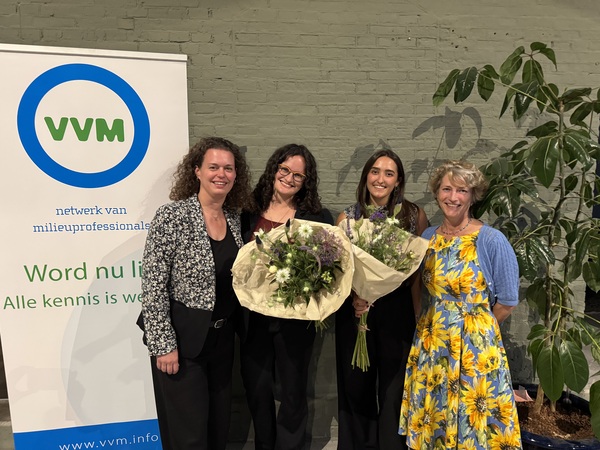The award is an initiative of VVM, network of environmental professionals and several environmental study associations. With this annual award we want to make the environmental and sustainability research that students have conducted better known among a larger audience. The members of the jury come from the environmental work field, the universities and higher education.
The prize is named after the writer and ecologist Rachel Carson, who became known for her book 'Silent Spring' from 1962. Possibly the first book in which environmental issues take a central place. The title is a reference to the spring of the apocalyptic year that the birds no longer sing because they have been exterminated as a result of the use of pesticides.
The competition is open to full-time and part-time students at Dutch universities and colleges of higher education who have written a masterthesis or finished a graduation project on a subject with a direct relationship to environmental issues or sustainable development. Graduation projects that have already once been submitted for this prize, will not be taken into consideration. Eligible for participation are: bachelor theses and bachelor graduation projects such as advisory reports, videos, and other works from studies at colleges of higher education (HBO) and master theses from university studies (WO). The HBO and WO entries will be assessed separately.
The pre-selection committees for HBO and WO assess all submissions and determine which works will be nominated. At a festive meeting where the winner is announced, all nominees can present their graduation work.
The VVM also offers the winners the opportunity to publish an article in our journal Milieu. This brings the student's work to the attention of a broad network of environmental professionals. The winners will receive a sum of € 500,- at most.
The student or his/her supervisor will send a digital copy (as a PDF) of his/her graduation work to the VVM office by December 1st, 2025 at the latest. The graduation project or thesis must have been graded between July 1st, 2024 and November 25th, 2025. The graduation report or thesis must be accompanied by:
You can apply by filling in the application form. When applying, it is necessary to submit all requested documents (digitally).
The award ceremony takes place during Groene Peper, the yearly event about sustainability in education. This free event is always organized at a different school.
The assessment will be carried out by a jury consisting of experienced environmental experts from the government, the business community, higher education and universities. The composition of the jury is not yet known. More information about the composition of the jury will soon be available on this page.
This jury is assisted by two pre-selection committees. The pre-selection committees for HBO and WO read all the submitted graduations projects and theses and determine which works will be nominated for the Rachel Carson Thesis Award. The nominated graduations projects and theses are assessed by the jury. The jury appoints two winners, one from the HBO submissions and one from the WO submissions.
The following criteria are used in the assessment of master's theses from university education:
These criteria are used in the assessment of when assessing graduation projects from colleges of higher education:
graded with at least an 8,0 between July 1st, 2024 and November 25th, 2025
a maximum of € 500,-
by December 1st 2025 at the latest using the application form
VVM network of environmental professionals
uaerub@vvm.info / 030 - 232 29 89

The winners of the 22th edition of the Rachel Carson Thesis Award 2025 were:
HBO: Helena Comella Romeu with her thesis Framing in Climate Change Communication and its Influence on Ideological Divides.
WO: Sterre ter Haar with her thesis The direct effect of CO2 rise on the plant ionome: Implications for Exacerbating Global Malnutrition.
The Rachel Carson Award 2025 was sponsored by: